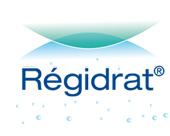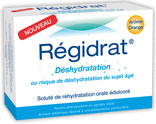The direct or indirect consequence of one-third of hospitalisationsWater metabolism disorder
Loss of sensation of thirst
Other situations that increase risk:
|
The deleterious effects of dehydration in the elderly were clearly evidenced during the heat wave of 2003, when 14,800 extra deaths were recorded (1). The major risk factors for development of dehydration, beyond age-related change which is the primary risk factor, are dependency, neurodegenerative diseases such as Parkinson's disease, dementias (Alzheimer's disease and related pathologies), cardiovascular diseases, obesity, undernutrition, taking certain medications, and living in poorly adapted home (2). Dehydration treatment must be preventive in order to avoid pathological consequences that can be major (3) in an elderly subject whose body composition is low in total water in comparison with the adult subject (4). The heat wave evidenced that there was a lack of a hydration product intended for high-risk populations, easy to use, whose function would be to ensure oral rehydration while limiting energy intake only to the need for hydration.
(1) Bulletin Epidemiologique Hebdomadaire n°19-20/2006. (2) Lavizzo-Mourey R, Johnson J, Stolley P. Risk factors for dehydration among elderly nursing home residents. J Am Geriatr Soc, 1988; 36: 213-8. (3) Ferry M. Strategies for Ensuring Good Hydration in the Elderly. Nutr Rev., 2005; 63, S 1: 22-9. (4) Schoeller DA. Changes in total body water with age. Am. J. Clin. Nutr., 1989; 50: 1176-81 |






